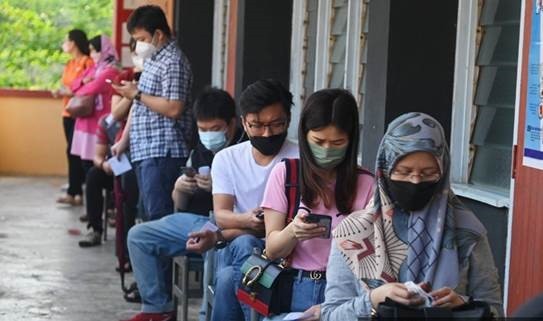
PETALING JAYA: Two economists have warned that holding the 15th general election (GE15) now could cause disruptions, leading to uncertainty, in the economy.
Geoffrey Williams of the Malaysia University of Science and Technology said the dissolution of Parliament has already disrupted next year’s budget, on Oct 7, and Center for Market Education CEO Carmelo Ferlito said there will be a short period of uncertainty until a new government is formed.
Williams said that once elected, the new government might have to table a new budget and that would cause uncertainty over various fiscal programmes and the distribution of aid.
“This is a bad time for an election. First, there is very little time to re-table the budget after the election,” he told FMT Business.
He said the people, especially the economists, would not have the time to fully understand the impact on the 200 projects under the budget tabled by finance minister Tengku Zafrul Aziz.
However, Tengku Zafrul has dismissed claims that the budget he tabled had become redundant upon the dissolution of Parliament.
“The budget can be tabled again, as it happened in 1999 when snap elections were called (after the 2000 budget was tabled). There is already a precedent,” he said.
In refuting Tengku Zafrul’s argument, Williams said the outcome of the elections is “not at all certain” because political coalitions are unstable.
“Furthermore, there may be a big impact from Undi18 given that there are many new voters now,” he said in reference to the lowering of the voting age from 21 to 18 and automatic registration of voters.
He said GE15 would also add to the short-term uncertainty unless the politicians present “exciting new ideas” for structural reforms that would help the new government build confidence.
“Until then, we will have to wait and see what happens,” he said.
Williams also raised concerns about the impact of the elections on the ringgit. He pointed out that the currency had held steady against the US dollar when the budget was tabled on Oct 7 but weakened after the dissolution of Parliament on Oct 10.
He said that while economists had warned of an economic slowdown or even a recession in the second half of 2022, increased demand has put off the worst of the possible effects from the global economic slowdown for now.
“However, this is just short-term. As the government has been telling us, it will be worse in 2023 and that will begin to show before the end of 2022,” he said.
Tengku Zafrul had cautioned that 2023 would be a challenging year for all countries, but dismissed claims that Malaysia was already in an economic crisis.
The International Monetary Fund had, on Wednesday, raised Malaysia’s economic growth forecast for the year to 5.4% from 5.1%.
However, it also revised downwards the outlook for the Asean-5 countries comprising Indonesia, the Philippines, Singapore, Thailand and Malaysia for next year, citing less favourable external conditions such as slower growth in major trading partners such as China, the Eurozone and the US.
Ferlito said there will be a short period of uncertainty until a new government is formed.
“The economic impact for the future will depend on the policy agenda and the vision of the new government,” he told FMT Business.
He questioned whether the new government would rationalise operational expenditures and what type of ecosystem it had in mind for investments.
“Elections are necessary because they will force the political parties to show their cards and, hopefully, a good economic agenda will emerge and prevail,” he added.
Source: https://www.freemalaysiatoday.com/category/highlight/2022/10/14/bad-time-to-hold-election-now-say-economists/

